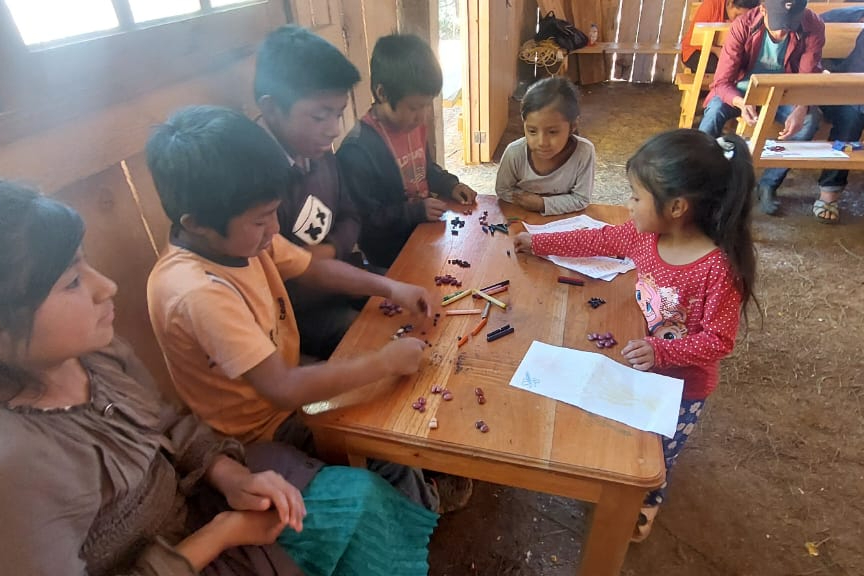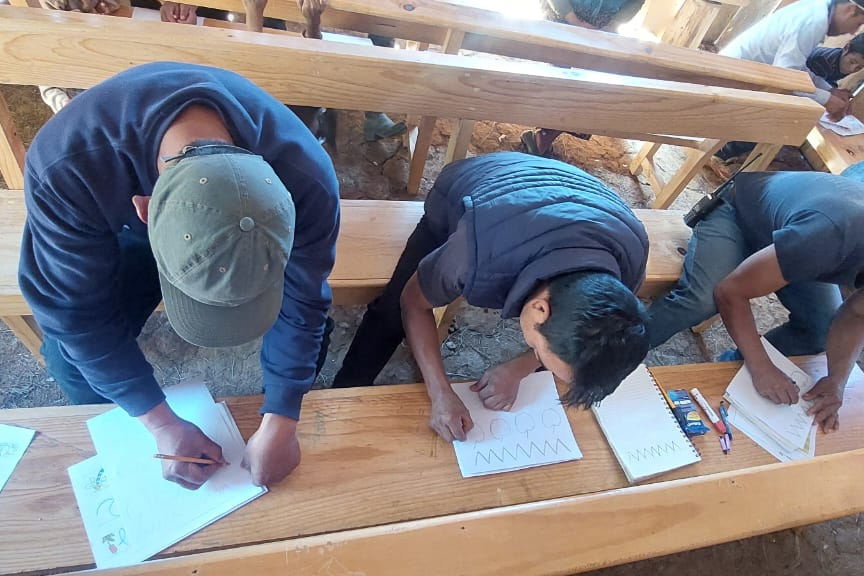Schools for Chiapas began nearly three decades ago as a grassroots solidarity group whose primary purpose was to raise funds to build school structures, and supply educational materials for autonomous indigenous schools in Zapatista communities. Over the years, our work has evolved in step with the priorities of the communities. We have ventured into native seed preservation, food forests, medicinal plants, and holistic health. But the processes of education and its continuity have remained at the heart of our work.
Education being one of the first priorities following the uprising, the communities in resistance set themselves to selecting promoters from within their communities who would receive ongoing training in liberatory pedagogies, teaching techniques and curriculum development. These promoters then go on to share what they have learned with the next generation, and the next.
In this vein, this year, our work has begun a new cycle. In the wake of pandemic, and facing an era of intensifying violence, communities in resistance are isolated and eagerly seeking the confidence, skills and materials to teach the next generation. Under these conditions, we are working with communities to support the education of new promoters. “Teacher educators” support promoters in understanding learning processes in order to create conditions for that learning to happen. By embracin the knowledge and experience of the promoters as well as the dynamics of the community as a whole, educators facilitate the acquisition of skills that respond to real needs within the community.



One of those basic skills is literacy. The UN considers countries to be free of illiteracy when less than three percent of the population is unable to read or write. At the federal level in Mexico, seven percent of the population is illiterate. In Chiapas, that figure is eighteen percent, six times higher than the level tolerated by the UN and more than twice the national average. Literacy programs will be one of the main foci of our community work in 2024.
Be it in the classroom or in the milpa, the kitchen or the world outside of Chiapas, we are delighted to be working with communities in the pursuit of autonomous community-based education.
